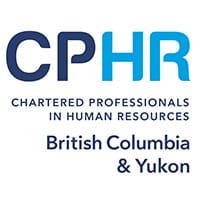The BC Freedom of Information and Privacy Association, known as FIPA, is a public interest group that promotes Canadian privacy rights, including those applicable to employees in the workplace. As part of their public outreach, FIPA provides extensive information to Canadians on provincial and federal privacy laws and their application to employees and employers.
FIPA explains that while Canadians have privacy rights at work, they are balanced by employers’ rights to access, use or release some personal information of employees for reasonable and appropriate reasons. Both Canada and British Columbia have privacy laws and which jurisdiction’s laws apply in a particular workplace depends on the nature of the employer such as its industry or legal structure.
For example, the federal Personal Information Protection and Electronic Documents Act or PIPEDA governs employers in telecommunications or broadcasting; transportation that crosses provincial or national boundaries; aviation; financial institutions; nuclear energy; certain private businesses in Yukon, Nunavut and the Northwest Territories; maritime transportation; some activities of First Nation band councils; certain federal Crown corporations; and private businesses in provinces that do not have their own provincial privacy laws.
Federal government employers are subject to their own Privacy Act.
British Columbia has its own provincial private-sector privacy law, the Personal Information Protection Act or PIPA that governs companies and nonprofits in the province. This piece of legislation is substantially similar to PIPEDA so PIPEDA does not apply to areas covered by BC PIPA. Separate BC privacy legislation – the Freedom of Information and Protection of Privacy Act – applies to most provincial public-sector (government) employers.
In general, employees who work for employers governed by federal privacy laws can file complaints for privacy violations with the Office of the Privacy Commissioner of Canada or OPC, which investigates and attempts to resolve complaints through negotiation, mediation, conciliation or federal lawsuits.
Similarly, employees whose employers are governed by BC privacy laws may file complaints with the Office of the Information and Privacy Commissioner for BC, called OIPC, a provincial government agency with similar powers to the federal OPC. OIPC formal orders and decisions are subject to review by the BC Supreme Court.
This is a broad introduction to Canadian and BC privacy laws which touch on the workplace, which we will explore in more detail in future posts. In the meantime, any BC employee with privacy concerns at work or BC employer seeking guidance for privacy law compliance should seek the advice of a lawyer.


